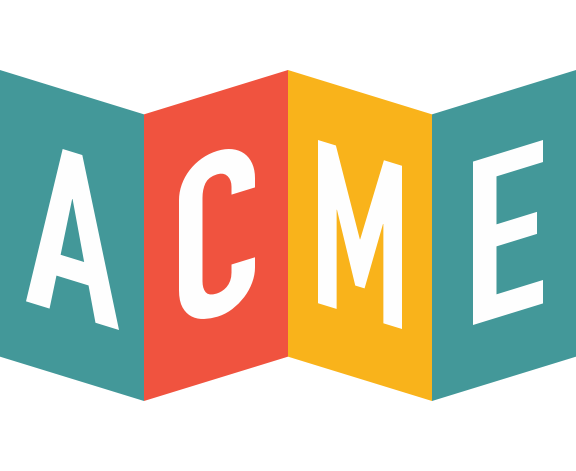
Event Sponsorship Best Practices
For many nonprofits and cultural institutions, sponsorship is often a necessary part of gaining the funding you need to support an event.
Even with donor campaigns and fundraising efforts, partnering with local business or larger organizations can give you the security, credibility, and resources you need to carry out a successful event.
Below we’ll cover key event sponsorship best practices you should be following to maximize your event sponsorship efforts.
What is Event Sponsorship?
An event sponsorship is a partnership between your nonprofit and another business or organization. Businesses and organizations will support your event by providing direct funds or gifts in kind, which include things like equipment, software support, computers, food, or other items necessary for the success of your event.
What do the sponsors get?
- Advertising opportunities.
- Exposure to your members/guests.
- Credibility for supporting your organization.
- The opportunity to get behind an important cause.
- Greater brand image and recognition.
It’s a win-win for both parties because sponsors get to market their businesses, and you get the much-needed support you need to bring your event to life. It’s best to work with sponsors who are in some way aligned with your organization, which we’ll get into below.
Why is Event Sponsorship Important?
There are a ton of reasons why event sponsorship is important and beneficial to your organization and event. First of all, it helps you attain the necessary funding you need to run a successful and memorable event.
Beyond the funding, event sponsorships allow you to:
- Build important relationships and create partnerships that will further future opportunities.
- Bring more guests and audiences into your doors. Your sponsor will provide you with greater visibility and access to guests you wouldn’t have otherwise had.
- Build credibility by working with a credible and known sponor.
- Do more with your events. You can leverage funding and in-kind donations (art, tables, etc.) to make the best event possible.
Types of Event Sponsorship?
There are hundreds of kinds of sponsorships that can be summed up into four categories: financial support, gifts in kind or in-kind donations, promotional relationships, and media marketing.
- Financial sponsorships are fairly straightforward and are the most common types of event sponsorship for nonprofits. Sponsors provide direct funding to nonprofits for the added perks of publicity, branding, and other benefits.
- Gifts in kind (in-kind donations) involve sponsors giving products and services rather than cash. Again, this could be access to software, food, venues, computers, tables, prizes, or whatever else you may need for your event.
- Promotional relationships are usually made with individuals as opposed to organizations. You might partner up with a musician, social media influencer, local leader, or other important members of the community.
- Marketing is another way to get support for your event. Social media partnerships and marketing firms support you by using their channels to get promotional content for your event out there.
Finding an Event Sponsor
Finding an event sponsor can be challenging for some organizations and a breeze for others. How quickly you find a quality sponsor will have to do with things like the seasonality of your event, the industry you’re in, how connected you are already to organizations, and how topical your cause is, among other factors.
Taking a proactive approach will be important on your end. Below are some following approaches you can use to help find quality sponsors quickly.
- Defer to your network
- As a nonprofit organization, you likely already have an ecosystem of companies and organizations in your network. Start with your current partnerships to see what kind of opportunities are already available to you.
- Start locally
- If you’re a smaller or newer organization with a limited network, look to your local community for partnerships. You can try local businesses, schools, and other cultural institutions that might align with your cause.
- Try to find companies with a similar mission statement
- It will be way easier to pitch to companies that are in your field and line of work. If they have a similar mission statement (sustainability, for example) then the partnership will feel far more intuitive. Companies want the credibility of working with a recognized nonprofit for a good cause; you can lean into that desire.
- Look to nonprofit events in your field to see who sponsored them
- Another great way to find sponsors is to look at other nonprofits holding events. Who sponsored those events? What kind of companies are they working with? Businesses already sponsoring other nonprofits in your field will probably be more willing to sponsor your event as well.
Tips for Getting Event Sponsor7
Now that you have a list of sponsors to reach out to, how do you secure their support? Below are a few tips to leverage in your exchanges with sponsors to maximize your chance of getting the support you need.
- Explain benefits for the sponsor
- Some sponsors won’t always know how supporting a nonprofit can benefit them. Be sure to explain the benefit to the sponsor for supporting your event.
- Be clear and thorough
- Your event shouldn’t be hard to understand. Your sponsors should know exactly what kind of event they’re supporting, what impact it will have, and your organization’s goals all in one email/message.
- Provide sponsors with options
- Many events have multiple sponsors, and you don’t need to ask sponsors to fund everything that goes into your event. Give them some options for low-stakes donations that might make them more likely to give.
- Established brands to draw a more attention
- Local businesses are great to place you in your community, but you should also be going after established brands to draw more attention to your events. Sponsor brand recognition leads to more visitors, more guests, more visibility, and more donations.
- Leverage data when possible
- How many visitors did your last event bring in? What quantifiable impact did your last fundraising campaign have? Statistics and data are often easy-to-digest ways of understanding impact. Leverage the data you have to demonstrate the efficacy of your organization.
- Always follow up with your sponsors
- Follow with your sponsors in a timely, polite manner. Follow ups show you’re committed to the partnership and that you value them as a sponsor… just don’t overdo it by flooding their inbox with requests.
Finally, be sure to give them options for how they can sponsor your event. You can get really creative here by providing companies with unique ways to show their support.
This might include:
- Guest speakers
- Webinars
- Sponsor logos and imaging
- Merchandise
- Custom WiFi with the sponsor’s name
- Sponsor-themed events
How Acme Can help
ACME is a modern, flexible, and easy-to-use ticketing and management system that will bring your events to life with ease. You can take advantage of timed ticketing features, contactless entry and touch-free payments, a flexible POS, and omni-channel payment options to streamline your processes and grow members.
Our customizable ticketing software is both intuitive and flexible, providing you with all the tools and freedom you need to optimize your events. Try the ACME demo to see how you can generate new members, plan events, and land credible sponsors today.

